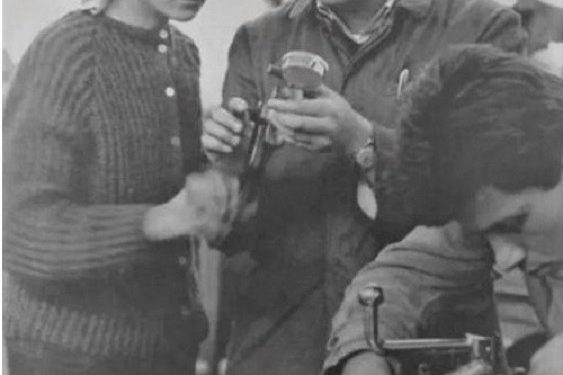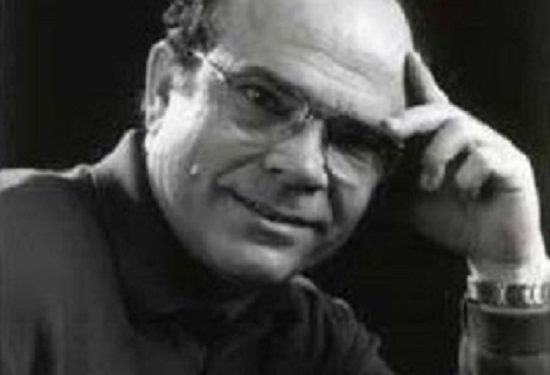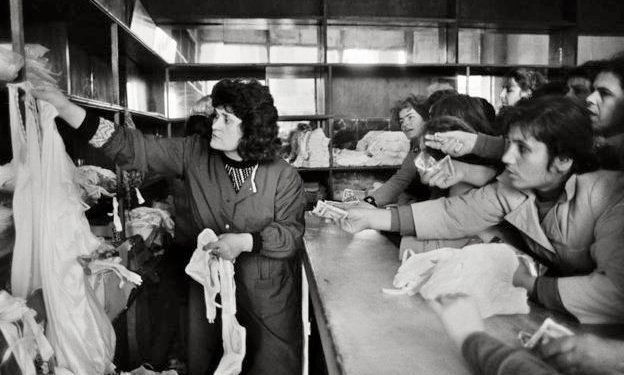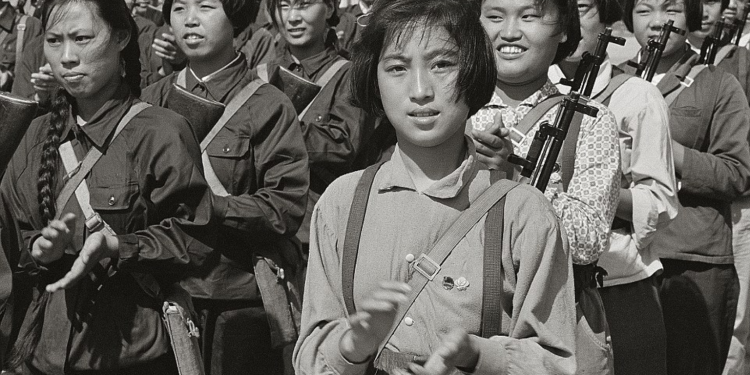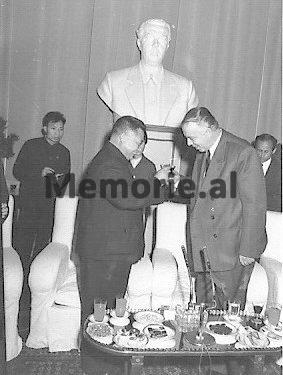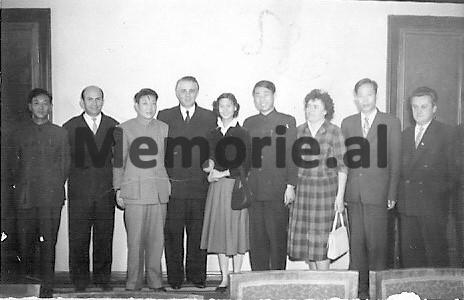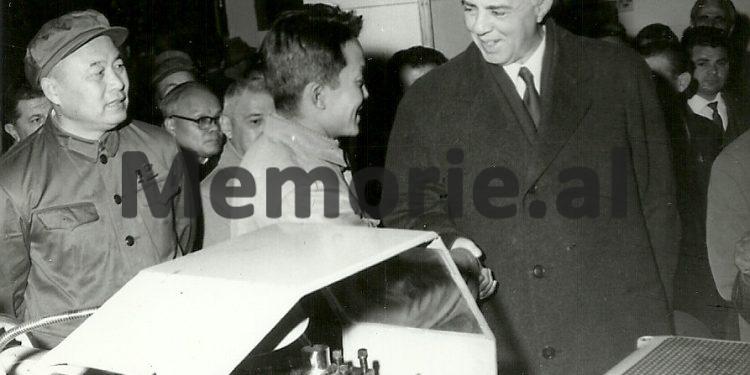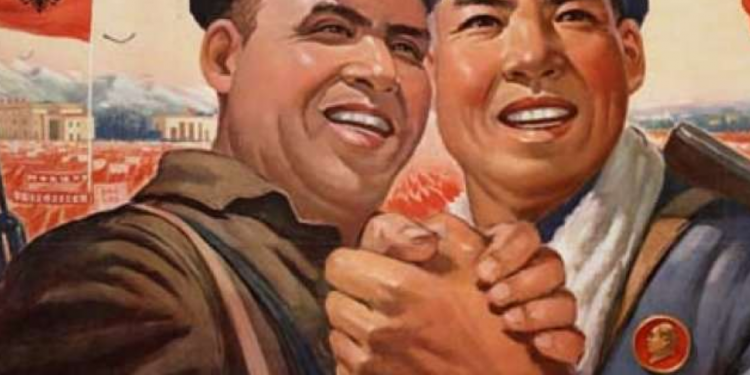By Vasil Qesari
Memorie.al/ The overthrow of the great totalitarian edifice in Albania would leave behind, not only the change of the system, accompanied by lots of hopes, mirages and cries of happiness but, unfortunately, also many wounds, dramas, victims, dust, milk and disappointments from the most different. Ten years and more after that event, which deeply shook society, completely overturning many previous codes, rules and concepts, people still continue to ask themselves such questions as: What really happened in society Albanian, during the last 50 years of the dictatorship? How was it possible that the system managed to warp everything? Why did people accept it? What was the totalitarian logic of the transformation of society and the individual? How were the structures of totalitarian mechanisms conceived and functioning: propaganda, secret police and the exercise of the ideology of terror? How did it happen that among all the communist countries of Eastern Europe, Albania was considered an exception or a special case? Why did Enver Hoxha remain blindly, fanatically loyal to Stalin until the end, turning the country into a prison where violence, fear and purges continued until the end of the 80s? Why was the country so insanely isolated, locking people up between bunkers and barbed wire? Why, then, did all the above phenomena happen…?! The book “Post-scriptum for Dictatorship” does not claim to provide definitive answers to the above questions, or the complexity of the reasons that brought and maintained the totalitarian power in Albania. Nor is it a complete, deep and comprehensive fresco of the life and suffering that people experienced during that system. Its author, perhaps, has the merit that together with the retrospective view of the totalitarian period as well as the zeal of a passionate analyst, he has tried to turn his head back once again, to give not only his personal memories and opinions, but also to return once again to the vision of that era with the simple philosophy of preserving the Memory and supporting the Appeal to never forget the well-known maxim, that…the corpse’s nails and hair continue to grow even after death! Ten years or more after the great revolution, the book in question has current value and we hope it will be appreciated by the reader because, as an Albanian researcher also says… the greatest evil that can happen to a people comes when he fails to analyze his own past. An amnesic people are forced to be constantly neuropathic and repeat their painful experiences…!
THE BROTHERS FROM TIBET
From the end of the 60s, and especially during the 70s, the presence of foreign tourists of a special kind increased rapidly and massively in Albania. They came to sister Albania from the depths of distant Asia. From China – the homeland of the great helmsman, Mao Zedong. Divided into small groups, almost two by two, the Chinese first appeared on the streets and sidewalks of the center of Tirana, walking in line, silent and docile like disciplined soldiers. Many of them, after leaving the “Dajti” Hotel, posed in front of the monuments of Lenin and Stalin, taking pictures with cameras in their hands, and then continued their visits to the capital.
Often, people stopped for a few moments and looked curiously at the new friends the Party had made. It was the first time they had seen the representatives of another race, who resembled each other so much, not only by the yellow color of the skin, protruding zygomata and small eyes like almonds, but also by the identical blue and tightly buttoned up to the throat. (Not to mention the flat cloth slippers, the close-cropped hair and, especially, the frozen, nonsensical smiles they kept permanently plastered on their faces).
As in many parts of Albania, and in Vlora, their presence within a short time, increased significantly. But for anyone who had the chance to meet them, the first impression was not enthusiastic at all. On the contrary, disappointing. Asian friends, comrades in arms of Marxist-Leninist ideals, were not as attractive as official propaganda made them out to be. First, the common people noticed that, in many ways, they were not at all like the other foreigners who had come to Albania until then.
Of course, there was no question that they (the Chinese) had even a little of the charm and originality of those who came from Europe. To make matters worse, they had nothing in common even with the Soviets of former friendship, who were generally sociable, chatty, fond of dancing, alcohol and women. Completely different from all the other tourists, the Chinese brothers had come for one purpose only. To help in the socialist construction of “sister” Albania.
For the Volonts, their presence, (with all the propaganda slogans of the government about unbreakable friendship with the People’s China), was something that did not stick. No one, not even those who worked with them, had managed to create any kind of friendly relationship, even a symbolic one. The Chinese were cold, closed, withdrawn, enigmatic, unsociable and distant from the locals. Their Asian nature did not match at all with the warm and dynamic Mediterranean temperament of the Volodyans.
They worked alone. From morning until late in the day. Constantly drinking tea without sugar from their characteristic thermoses which they had brought from China. After work, they spent their evenings and nights in their apartment. A modest hotel, whose former name, (“Vollga”), had remained as a distant memory, only for the generation that had experienced the former Albanian-Soviet friendship. Their free time, which was closed within the four walls of that hotel. There they played ping-pong, bathed with wet towels, cooked their strange dishes and then locked themselves in the rooms.
Every morning, a Chinese “Red Star” type bus picked them up and took them to the construction sites. Hotel – work and vice versa. He was the growth of their life as ascetics separated from entertainment. (Except on Sundays, when the same bus took them to Cold Water Beach. There, they sat by the sea, lining up their colorful towels on the sand. Later, for reasons unknown it is known, the Chinese gave up bathing on public beaches and began to frequent some remote and deserted corners of the bay of Vlora).
As usual, during the construction of the PVC plant, whenever I went to prepare television reports, I first met the Albanian leaders and then made the necessary filming. (At that time, the plant was presented to us as a work of very modern technology. Later, we learned that many of its production schemes and technological processes were at the level of the 40s – 50s. In fact, only little years ago, that magnificent work was painted over, thus becoming the biggest polluter of the environment in the city. From the grandiose reinforced concrete silhouette of that technological pride, today only an impressive mountain of ruins and rusted ironworks remains. ..)
There were several times that I had tried to interview or exchange even a few words with the Chinese specialists of chlorine, carbide, oxygen, etc. line assemblies. With friends Çu, Çe, Çin, Çan…! But what a waste! Although I explained to the translator accompanying them that I was a journalist, they refused to say even a word. They pretended not to understand, smiled and pulled away cutely to avoid the camera lens.
It was clear that they did not like contacts with people from the press. In order to avoid it, they made all kinds of excuses, which were often contradictory. Thus, at first, they said that they were very busy with work, and then, when they encountered insistence, they forced themselves to say that they were not authorized to speak with journalists and that we could get detailed information about the progress of construction at the plant only to friend Xang.
As J.M., a former technologist at that plant told me, the Chinese specialists trembled when they heard Comrade Xang’s name. He was in charge of the whole group of Chinese and he went to work not like everyone else, with the staff bus, but with a new “Xing-Fu” without a license plate. Mysterious character, Comrade Xang, as it was said, was also the political commissar of the group, a kind of chief of their political police.
Meanwhile, K.L., who had served for many years as a waiter at the Chinese Hotel, confessed to me that Comrade Xang was for them an all-powerful man, God himself. His word was law. Once, within 24 hours, he had sent a postal package, first to Tirana and then to China, a young Chinese specialist, who was said to have accompanied a little too much, an Albanian surveyor girl, R.H. (Chairman Mao did not say for nothing that: “It is more useful to kill mosquitoes than to make love…!”)
Strict and ruthless, Comrade Xang was also the leader of the ritual of nightly reading sessions, meditations and collective reflections around the red book of Chairman Mao’s Quotations. (They met regularly in the great hall on the second floor, at eight o’clock every evening. Obedient and silent like fanatical Muslims, they sat on their knees on the carpet before the large portrait of the prophet of China, read it aloud until midnight, his Quotes).
Before the plant started work, qualification courses were also set up for the preparation of its future technologists. They were led by the Chinese as well as some Albanians who specialized in China. Hundreds and hundreds of boys and girls took part in the courses; most of them aged 18-24. (That generation of young men and women who started working in the factory, over the years I would always see them more and more tired, worn out, withered, old and sick from the night shifts, the very menial work, miserable conditions, poisons and suffocating gases of that modern technology, where they were condemned to spend the most beautiful years of their youth).
During the development of the courses, the Chinese specialists with their typical, pedantic and rigid nature devoted all the time to the explanations and breakdowns of the technological schemes. There was no casual conversation, cigarette exchange or glances at all those young, beautiful girls taking notes. It was an atmosphere that the Albanians could not get used to. Then, it happened that one of the girls teased me, made jokes and threw such jabs at the Chinese professors: “I’m sorry, professor! I have a question? How do you Chinese express love…?
Everyone burst out laughing. Meanwhile, the Chinese with faces frozen like plaster, hurried to ask the translator. After learning their meaning, they would remain silent for a while without reacting. With red and embarrassed faces. Then, straining to put an end to the noise of the gala, they strained to throw some of their indecipherable smiles at the hall. Such shakaras, however, were harmless. But, other times, you had made sure that incidents happened with the Chinese.
“In the electrolysis department where I worked – says B.E., former technologist at that plant – one day something unexpected happened which then turned into a big problem. The worker XH.K. was collecting the pieces of mercury that had fallen during the technological tests on the first floor of the department. Apparently, at work, you had teased a friend by making an exaggerated joke. XH.K., irritated, couldn’t help himself and shot him with an old gasket that happened to be nearby.
At that very moment, two Chinese entered the ward and, damn it, the garrison kicked their legs. XH.K., instead of apologizing, put his hands in the middle and cracked the gas. The Chinese surprised by the “hit” and insulted to the max by the laughter of the Albanian worker, left the department angry and went straight to their boss’s office where they reported on the deliberate “provocation” by the Albanian “side”.
Since the time when Albanian-Chinese relations were in crisis, that’s why the issue took on very serious proportions. For the incident in question, the Chinese immediately notified their embassy in Tirana, while the Party Committee in the district called an urgent meeting of the Bureau. The next day, the Party Bureau gathered at the factory, and the worker XH.K. ended up handcuffed in the cells of the State Security, where he stayed for a few days and then came out, but fired forever.
The same fate happened, after a few months, to the engineer V.M., who, in a work debate with the Chinese specialists, persistently opposed them for a simple technological problem. Afterwards, the arrogant behavior of the engineer was described by them as a deliberate and premeditated incident. Even in this case, meetings followed meetings and, as a result, the engineer V.M. was also notified of his dismissal…! Memorie.al




